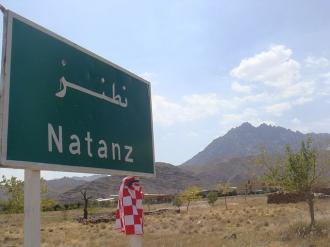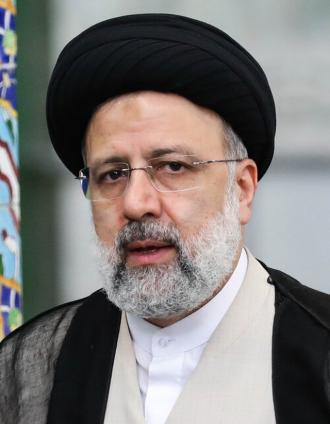Nairobi, Kenya - Kenya’s security forces have killed the Islamic extremist gunmen whose assault on a luxury hotel and shopping complex took 14 “innocent lives,” the country’s president said Wednesday.
“All the terrorists have been eliminated,” President Uhuru Kenyatta said in announcing an end to the overnight operation to secure the complex in the capital, Nairobi.
In a televised address, Kenyatta did not say how many attackers were involved. He said more than 700 people were evacuated during the security operation and urged Kenyans to “go back to work without fear,” saying the East African country is safe.
Sporadic gunfire could be heard while scores of people were rescued at daybreak during what police called a “mopping-up” exercise. A new blast was heard in the afternoon as witnesses said security forces were making a sweep of the complex for any explosives.
The American man who died in the attack along with 13 other people was a survivor of the Sept. 11, 2001, terror attacks in New York City, his brother has said.
Jewish Businessman Jason Spindler was one of the 14 people killed when four gunmen stormed a luxury hotel complex in Nairobi. One British man and 12 Kenyans were also killed in the attack.
Jason Spindler’s father, Joseph, says his son worked in the complex and often ate at a cafe in the luxury hotel targeted by the gunmen.
Joseph says his son grew up in Houston, graduated from the University of Texas and was enjoying a successful career on Wall Street when he decided that he wanted to develop a model for helping low-income people.
Jason Spindler entered the Peace Corps and lived in Peru, where he developed sustainable business models for rural residents.
Spindler, who would have turned 41 next Tuesday, later became a founder of I-DEV International and had been living in Kenya for about five years.
His father says he worked with international companies to form business partnerships in Kenya that would boost local economies.
Spindler’s friends have contacted the American embassy and the head of the Jewish community in Nairobi, Rabbi Silverstein, regarding the repatriation of his body back to the United States.
Surveillance video showed the attack that began Tuesday afternoon involved at least four armed men.
Al-Shabab — the extremist group allied to al-Qaida and based in neighboring Somalia — claimed responsibility for the carnage at the DusitD2 hotel complex, which includes bars, restaurants, offices and banks and is in Nairobi’s well-to-do Westlands neighborhood with many foreign expatriates. Al-Shabab carried out the 2013 attack at the nearby Westgate Mall in Nairobi that killed 67 people.
Most of the victims were Kenyans, a mortuary attendant said. The U.S. State Department confirmed that an American citizen was among the dead, and the company I-DEV International confirmed that its co-founder, Jason Spindler, had been killed. The British high commissioner in Kenya said at least one British national had been killed, without giving details.
Two local victims had been working on a fund to “bring peace and prosperity to Somalia through more than 100 local community initiatives,” the London-based Adam Smith International said of its employees.
Kenyan authorities sent special forces into the hotel to flush out the gunmen. Scores of people were rushed to safety in the early morning hours as explosions and gunfire continued.
“To God be the Glory. We have been rescued. Over 50 people in my group. No injuries,” tweeted a Kenyan businesswoman, Aggie Asiimwe Konde.
Describing the ordeal, Lucy Wanjiru said she had been trying to flee when she saw a woman on the ground floor get shot. She ended up in a washroom with several other scared people. Her friend Cynthia Kibe stayed in contact with her by phone overnight.
“I think I panicked when she told me that the gunshots are next to her,” Kibe said. “I had to keep telling her ‘Just wait, help is on the way, they are almost there, they are almost there.’ And then at one point she was like, ‘Please tell me I am getting out of here alive’ and then it was just like my breaking point.”
Mourning families and friends gathered at a nearby mortuary.
“I am a Muslim and I am Somali, I am Kenyan living here, and in that way I can assure you if al-Shabab found me today they call us what they call ‘Mortad’ (apostates), that is, someone who works against them and they wouldn’t differentiate me from yourself,” said Mohamed Yasin Jama, a friend of two colleagues killed.
The coordinated assault began with an explosion that targeted three vehicles outside a bank, and a suicide bombing in the hotel lobby that severely wounded a number of guests, said Kenya’s national police chief, Joseph Boinnet.
Kenyan hospitals appealed for blood donations even as the number of wounded remained unclear.
Associated Press video from inside the hotel showed Kenyan security officers searching the building and scared workers emerging from hiding while gunfire could be heard. Some climbed out a window by ladder. One man got up from the floor where he appeared to be trying to hide under a piece of wood paneling, then showed his ID.
Like the attack at the Westgate Mall, this one appeared aimed at wealthy Kenyans and foreigners. It came a day after a magistrate ruled that three men must stand trial in connection with the Westgate Mall siege.
Al-Shabab has vowed retribution against Kenya for sending troops to Somalia to fight it since 2011. Tuesday’s violence came three years to the day after al-Shabab extremists attacked a Kenyan military base in Somalia, killing scores of people.
The group has killed hundreds of people in Kenya. In the deadliest attack, al-Shabab claimed responsibility for an assault on Kenya’s Garissa University in 2015 that killed 147 people, mostly students.
The latest carnage demonstrated al-Shabab’s continued ability to carry out spectacular acts of bloodshed despite a dramatic increase in U.S. airstrikes against it under President Donald Trump.















